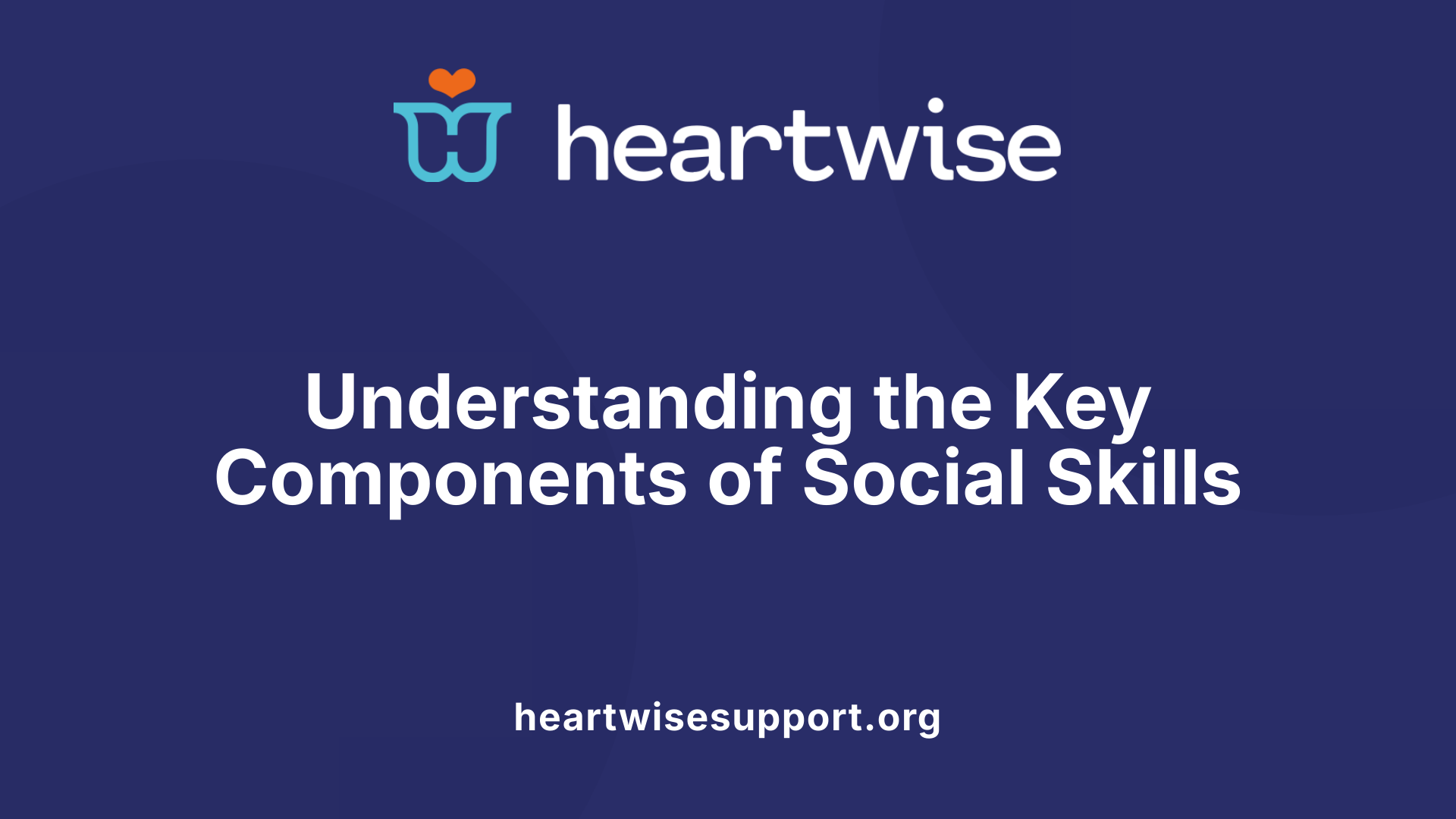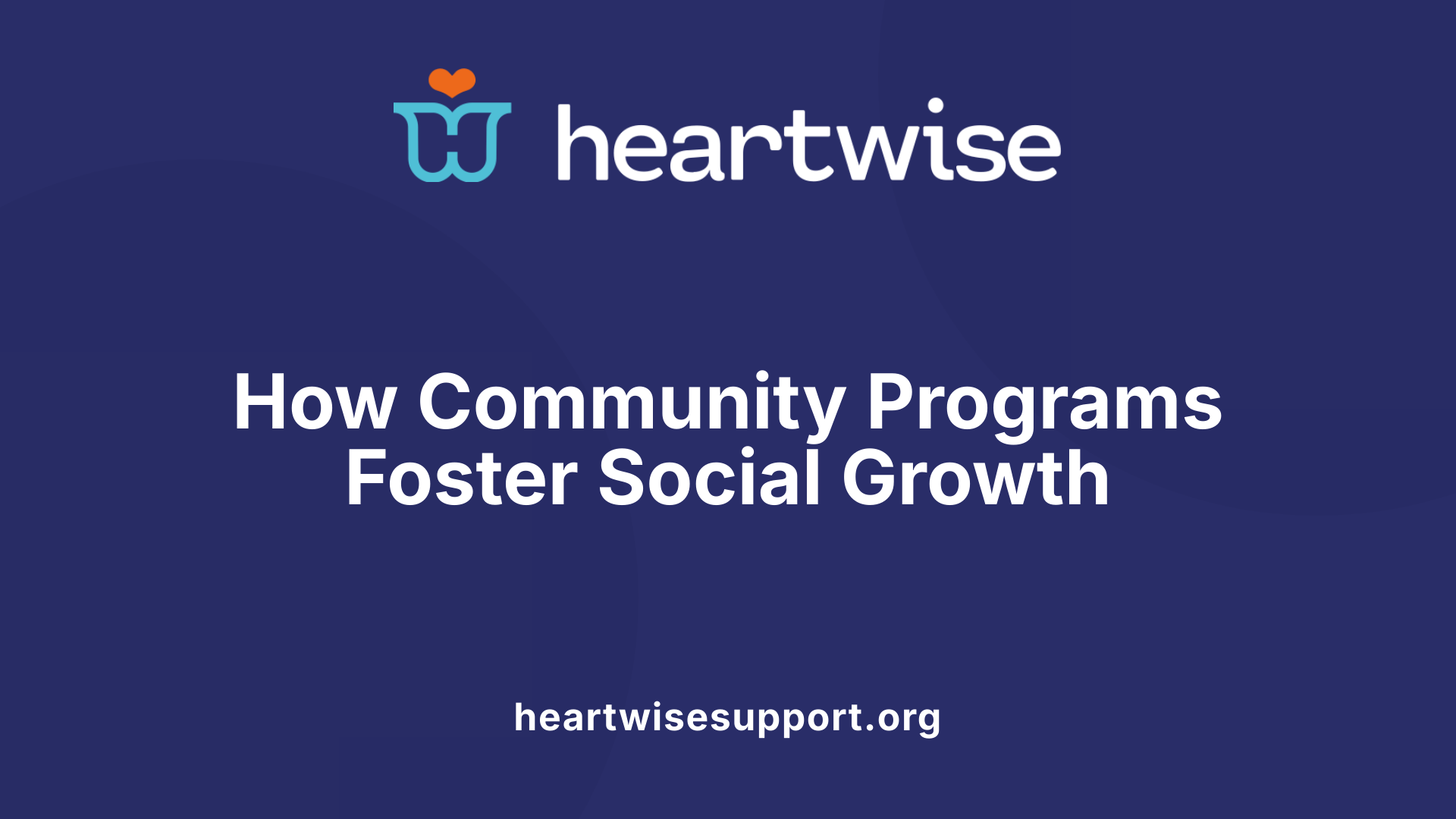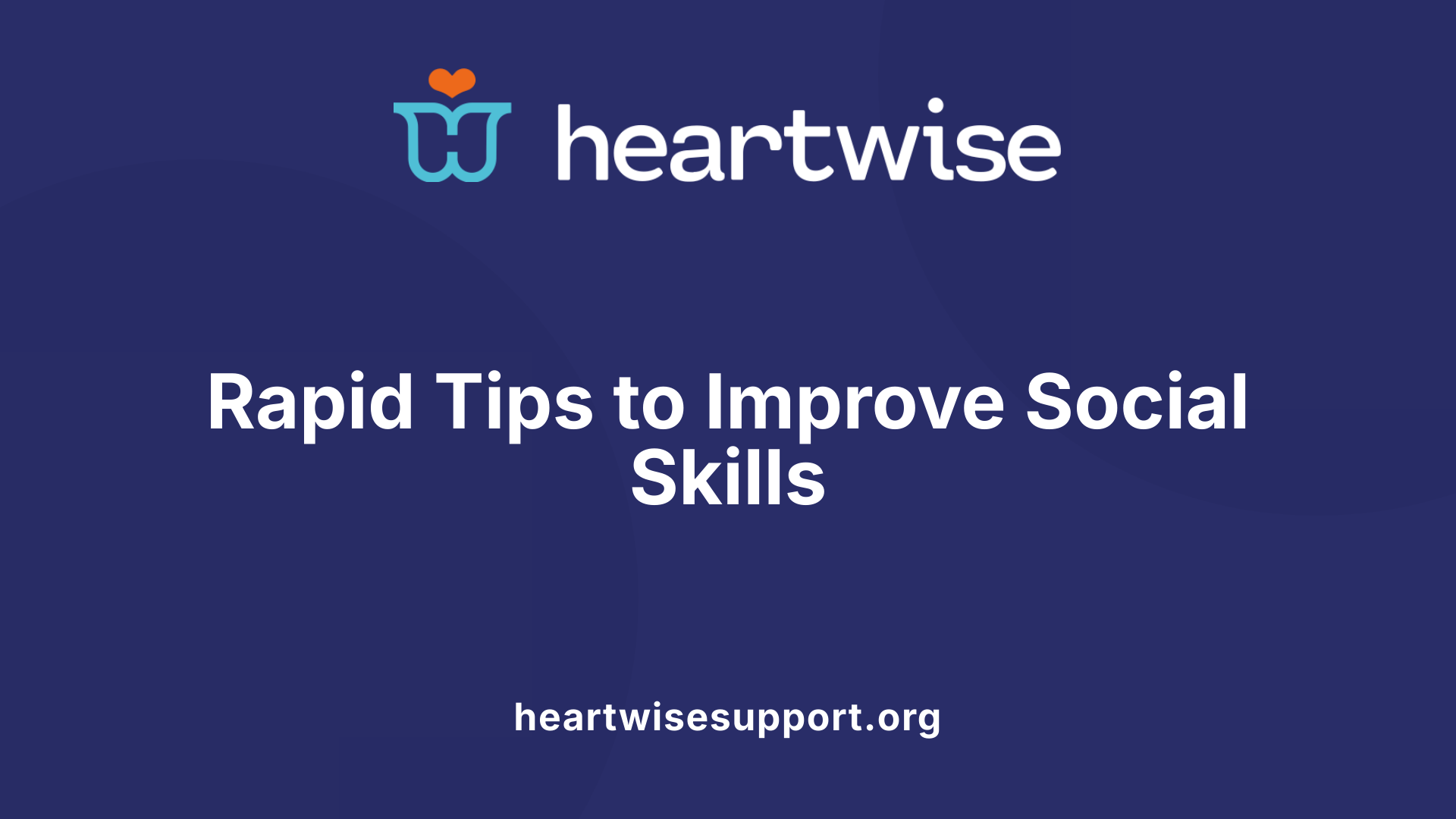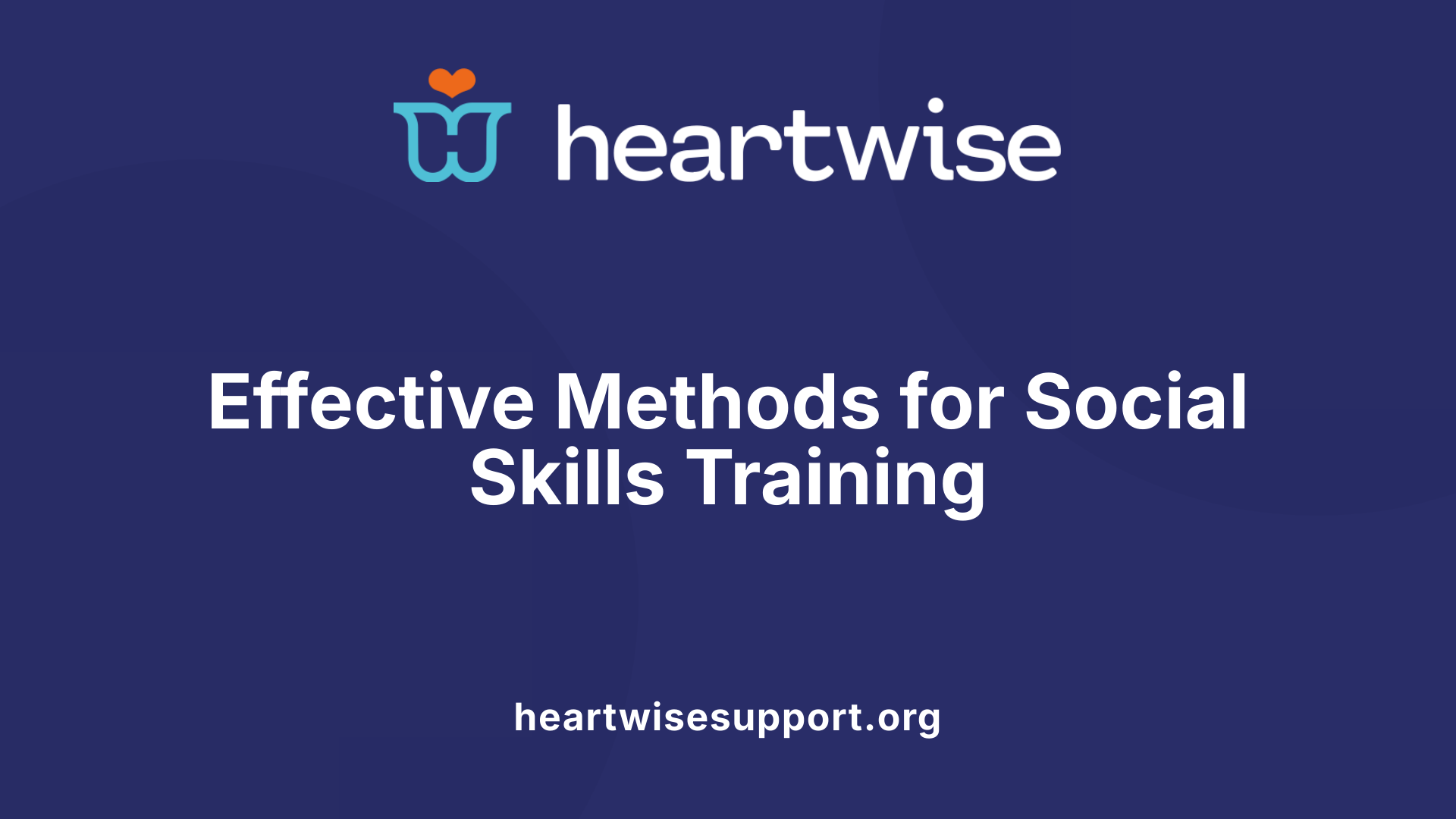Harnessing Community Initiatives to Cultivate Essential Social Skills
Building social skills is fundamental to personal and collective well-being. Community programs serve as vital platforms where children, teens, and adults can develop, practice, and refine their interpersonal, emotional, and social cognition abilities. By leveraging structured activities, inclusive environments, and evidence-based frameworks, these programs promote social competence, resilience, and civic engagement, ultimately enriching community life and individual growth.
Core Components of Social Skills

What are the core components of social skills?
Social skills comprise several interconnected abilities that enable individuals to interact effectively, build relationships, and navigate social environments confidently.
Interaction Skills: These involve the ability to engage in appropriate social exchanges, including initiating conversations, taking turns, and collaborating with others. Participating in team sports like soccer or basketball can strengthen these skills by emphasizing cooperation and joint effort.
Communication Skills: Essential for expressing oneself clearly and understanding others. Activities like group projects, debates, and role-playing help children learn how to articulate their thoughts and listen actively.
Participation Skills: These are about engaging in social activities, demonstrating responsibility, and contributing positively to group efforts. Structured environments such as summer camps, after-school programs, and community service projects foster participation.
Emotional Skills: The ability to recognize, understand, and manage emotions is vital for social interaction. Role-playing scenarios, emotional charades, and social storytelling cultivate empathy and emotional awareness.
Social Cognition Skills: These involve understanding social cues, perspectives, and the feelings of others. Video modeling, social narratives, and peer mentoring facilitate the development of social understanding.
Together, these elements form a foundation that helps children and young adults develop independence, form meaningful relationships, and succeed in both academic and social settings. Through a combination of direct instruction, role-playing, community activities, and inclusive programs, individuals can improve these core areas and lead more socially competent lives.
Community Programs as Catalysts for Social Development

How can community programs support the development of social skills in children and adolescents?
Community programs play a crucial role in nurturing social skills among children and teenagers. They provide structured, evidence-based activities that are designed to promote key social competencies such as reciprocal conversations, perspective-taking, and friendship-building.
One effective approach involves social skills groups and interest-based programs, where children participate in activities like playdates, cooperative games, and interest clubs. These settings create natural opportunities for children to practice social interactions in supportive environments, helping them develop confidence and communication abilities.
Programs such as the UC Davis MIND Institute's Social Skills Program exemplify targeted interventions that focus specifically on children with autism and social communication challenges. These programs emphasize personal growth, understanding social boundaries, and fostering independence, all within a structured setting.
In addition to the activities themselves, many community programs incorporate parent and caregiver components. These sessions equip adults with practical strategies for supporting their child's social development outside of program hours, ensuring that skills learned are reinforced and generalized in real-world settings.
Most programs are conducted regularly over several weeks, providing continuity and repeated practice, which are vital for meaningful social growth. They also often include leadership opportunities and social awareness exercises, supporting adolescents in navigating more complex social environments.
Furthermore, comprehensive clinical assessments and support from multidisciplinary teams help tailor interventions to each child's unique needs. This personalized approach is especially beneficial for neurodiverse children and adolescents, guiding them through social learning at a suitable pace and manner.
Overall, community programs serve as vital platforms for fostering social skills, promoting inclusivity, and preparing young people for productive and meaningful social engagement throughout their lives.
Quick Strategies for Enhancing Social Skills

What strategies can be used to develop social skills quickly?
To build social skills efficiently, engaging actively with others is essential. Initiating conversations, whether with peers, family, or new acquaintances, helps break the ice and creates opportunities for interaction.
Practicing small social interactions, such as greeting someone or asking a simple question, can gradually increase confidence and ease in social settings. Observing others’ social behaviors provides valuable insights into effective communication and appropriate responses.
Non-verbal cues play a crucial role in social interactions. Maintaining eye contact, offering a warm smile, and providing genuine compliments can help foster positive connections. These non-verbal signals often communicate empathy and interest.
Developing soft skills such as empathy, patience, active listening, and adaptability is equally important. These qualities enable better understanding of others' feelings and viewpoints, making interactions more meaningful.
Consistent practice across various environments — like social events, community activities, or casual meetups — accelerates the learning process. Over time, these strategies contribute to more confident, effective social communication, helping children and adults navigate social landscapes with greater ease.
Implementing Social Skills Training Effectively

Setting realistic goals
The first step in successful social skills training is to establish clear and achievable goals tailored to each child's needs. This involves identifying specific behaviors or skills that the child should develop, such as sharing, initiating conversation, or understanding others' feelings. Clearly communicating why these skills are important helps motivate children and provides a focus for practice.
Modeling and practicing behaviors
Modeling involves demonstrating the desired social behaviors, either through direct instruction or via videos and peer examples. Children are then encouraged to imitate these behaviors in safe, supportive environments like classroom activities or structured group sessions. Role-playing and social stories are effective tools, helping children understand practical application.
Reinforcing progress with rewards
Positive reinforcement plays a vital role in encouraging children to adopt new skills. Rewards can include verbal praise, stickers, or privileges, tailored to motivate each child. Recognizing small successes builds confidence and reinforces the connection between good social behavior and positive outcomes.
Generalizing skills across settings
For social skills to be meaningful, children must apply them in various contexts, such as at home, school, and community activities. This requires deliberate opportunities to practice in different environments, along with ongoing support from teachers, caregivers, and peers. Visual supports, like social stories or cue cards, help children transfer skills effectively.
Incorporating these steps into daily routines ensures that social skills development is consistent and ingrained. Programs at organizations like the JCC and through evidence-based curricula such as PEERS or Positive Action emphasize these strategies, leading to better social integration and confidence.
Benefits of Structured Social Skills Programs
How do structured social skills programs benefit children and teens?
Structured social skills programs create safe and encouraging environments where young people can learn, practice, and strengthen their interpersonal abilities. These programs typically involve activities like group games, role-playing scenarios, storytelling, and cooperative projects that facilitate real-life social interactions.
For children and teens, especially those with communication challenges or developmental disorders such as Autism Spectrum Disorder (ASD) or Attention Deficit Hyperactivity Disorder (ADHD), these programs provide tailored support to develop emotional intelligence and social understanding.
Participation helps improve important social skills like sharing, turn-taking, empathy, and conflict resolution. It also boosts confidence, making it easier for children to navigate peer relationships and reduce feelings of social isolation.
Moreover, these programs often promote peer connection and network cohesion, which can lead to more meaningful friendships and positive social experiences. Parental involvement and ongoing practice outside of program sessions are encouraged to reinforce skills and promote long-term social and emotional growth.
By fostering healthier relationships and reducing instances of peer rejection or behavioral issues, structured social skills activities support children in building a solid foundation for their social success.
Community-Based Initiatives for Inclusive Social Learning
Creating inclusive environments is essential for promoting social skills and understanding among children of all backgrounds and abilities. Community programs understand the importance of fostering diversity through thoughtful strategies and structured activities.
At programs like the CARES initiative and those operated by the Jewish Community Center (JCC), diverse activities are designed to encourage respect, empathy, and collaboration. These programs often feature modeling of inclusive behavior, where children learn to respect differences and celebrate cultural diversity.
Events such as Culture Day and multicultural celebrations are part of the effort to raise awareness and appreciation of various traditions and backgrounds. By integrating children with developmental disabilities alongside their peers, these initiatives help to reduce stigma and promote a culture of acceptance.
Training staff on inclusive practices and behavior support further enhances the effectiveness of these programs. Educators equipped with knowledge about diversity and inclusion create a safe, welcoming space where every child can participate meaningfully.
Such efforts contribute to cultivating empathy, promoting cultural sensitivity, and building a community where all children feel valued and understood.
| Program Element | Description | Purpose |
|---|---|---|
| Inclusive Activities | Cultural celebrations, peer pairing | Promote diversity awareness |
| Staff Training | Inclusion workshops, behavior support | Ensure supportive environments |
| Cross-Age Grouping | Mixing ages for shared activities | Foster mutual understanding |
| Family Engagement | Inclusive family events | Strengthen community bonds |
| Specialized Support | Support for children with disabilities | Facilitate meaningful participation |
These community-based efforts are vital for teaching children the importance of diversity, kindness, and empathy, laying the groundwork for a more inclusive society.
The Role of Frameworks and Curricula in Community SEL
What are the core components of social skills?
Social skills encompass a broad set of abilities that facilitate positive interactions and emotional understanding. They include interaction skills, such as initiating and maintaining conversations; communication skills like listening and expressing oneself clearly; participation skills that involve teamwork and collaboration; emotional skills like empathy and self-regulation; and social cognition, which involves understanding others' perspectives and social cues.
These components are interconnected, forming a complex, multidimensional construct crucial for personal and social success. Developing these skills through structured activities, community programs, and school curricula helps children and adolescents navigate social environments effectively.
What frameworks support social-emotional learning within communities?
The most prominent framework supporting social-emotional learning (SEL) in communities is the CASEL model, often referred to as the 'CASEL wheel.' This evidence-based framework provides a comprehensive approach to embedding SEL into various settings, including schools and community organizations.
The CASEL framework emphasizes five core competencies:
| Core Competency | Description | Example Activities |
|---|---|---|
| Self-awareness | Recognizing one's emotions and values | Reflection exercises, mood tracking |
| Self-management | Regulating emotions and behaviors | Goal-setting, stress management |
| Social awareness | Empathizing with others and understanding social norms | Cultural studies, community service |
| Relationship skills | Building healthy connections | Group projects, communication training |
| Responsible decision-making | Making ethical, constructive choices | Scenario analysis, moral dilemmas |
Systems-level implementation involves ongoing planning, evaluation, and collaboration across schools, families, and communities. Many programs incorporate SEL principles into curricula, extracurricular activities, and family engagement, creating an integrated approach that reinforces social and emotional competence.
Community initiatives often adapt these frameworks to promote inclusivity, cultural sensitivity, and equitable participation. By fostering environments aligned with CASEL's recommendations, communities can enhance the social skills of all members, supporting personal development and social cohesion.
Community Service and Civic Engagement as Social Skills Platforms
How does community service support social skills development?
Participation in community service activities offers a practical and impactful way for individuals to improve their social skills. Engaging in activities such as food drives, park beautification, cooking meals for those in need, and visiting assisted living facilities exposes participants to diverse groups and social settings.
These experiences help to broaden social networks, build trust, and develop rapport with new acquaintances. Working closely with facilitators, mentors, peers, and community members fosters empathy, responsibility, and leadership skills. Such interactions often result in increased friendships and heightened sensitivity within the community.
Community service not only nurtures personal growth but also promotes inclusion by reducing stigma associated with disabilities or social differences. It encourages respectful communication, conflict resolution, and teamwork—all essential elements of social competence.
Moreover, engaging in service projects cultivates a sense of civic responsibility and an understanding of societal issues. These activities reinforce the importance of helping others, fostering a spirit of collaboration and community-mindedness, which are crucial for developing well-rounded social skills.
Fostering Lifelong Social Competence
Community programs are invaluable for nurturing social skills across all ages, fostering a sense of belonging, empathy, and civic responsibility. By integrating evidence-based curricula, inclusive practices, and real-world experiences, these initiatives build resilient, socially competent individuals ready to contribute positively to their communities. Continued support and innovation in community-based social skills initiatives will ensure generations grow with the confidence and compassion necessary for thriving relationships and vibrant communities.
References
- Building Social Skills Through Group Activities: Enhancing Child ...
- Using Community Activities to Build and Develop Social Skills
- Social Programs | Helping Children Build Social Skills - Family First
- 13 Evidence-Based Ways to Teach Social Skills in 2025
- Building Social Skills Through Structured After-School Activities
- Promoting Social Skills in Inclusive Afterschool Programs
- What Is the CASEL Framework?











